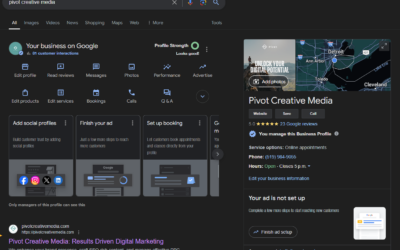Professional web designers frequently turn to WordPress as their platform of choice. As the most widely used content management system (CMS), WordPress is known for its versatility and user-friendly interface, making it an ideal solution for creating websites. While it’s true that the platform is popular among amateurs and enthusiasts due to its ease of use, this does not detract from its value to experienced designers. They leverage WordPress’ extensive theming capabilities, plugins, and community support to deliver sophisticated, high-quality websites tailored to their clients’ needs.
The popularity of WordPress is substantiated by its significant market share, as it powers a substantial portion of the internet’s websites. Despite a variety of alternative CMS options available, WordPress remains a staple in the toolkit of many professional web designers and developers. Its growing marketplace for themes and plugins, allows for customization and scalability that caters to a wide array of web projects.
CMS platforms are typically chosen by professional web designers not just for their popularity but also for their functionality and the specific needs of their clients. Although there are misconceptions about WordPress, that it is only suited for basic websites or it limits a designer’s creativity to pre-made templates, many professionals find that WordPress provides a solid foundation upon which custom, unique web solutions can be built. Its extensive adoption, combined with a strong community, ensures that it remains a relevant and powerful tool for web designers of varying expertise levels.
The Popularity of WordPress
Market Share and Usage Statistics
WordPress boasts an impressive 65% share in the CMS market, collected by data from sources like W3Techs. This platform is not only seen among small and medium sized businesses but also stands out frequently on high traffic sites, commanding a 27% share among the top websites in various rankings, including the top 1 million, 100k, and 10k sites globally.
WordPress in the Web Development Community
Amongst professional web developers, WordPress is widely utilized due to its ease of use, flexibility, and security features. Its appeal lies in its adaptability to meet client-specific requirements. According to industry conversations, the majority of experienced developers are familiar with WordPress and include it in their arsenal of tools for constructing websites.
Comparison with Other CMS Platforms
Comparing WordPress to other Content Management Systems (CMS) such as Joomla! and Drupal, WordPress is often favored for its user-friendly interface and extensive plugin ecosystem. While Joomla! and Drupal are also utilized professionally, they hold smaller segments of the market and are generally considered to have a steeper learning curve. WordPress’s intuitive nature makes it a go-to choice for many professionals, though the choice of CMS can vary depending on the project’s complexity and specific needs.
WordPress Features and Benefits
Content Management Capabilities
WordPress’s content management system is user-friendly and intuitive, which allows for easily management and publishing of content. It provides a straightforward dashboard that facilitates efficient website updates and content creation.
- Ease of Use: Intuitive interface with simplified content management.
- Updates: Regular updates that maintain the platform’s performance and security.
Themes and Customization Options
WordPress offers an abundant selection of pre-designed themes that are fully customizable. This gives web designers the freedom to establish a unique visual identity with minimal effort.
- Themes: Wide variety of pre-designed themes available.
- Customization: Themes are highly customizable to meet specific design needs.
Plugins for Extended Functionality
The plugin architecture of WordPress allows for the incorporation of new features and extended website functionality. Users can select from a vast repository of plugins to add features such as SEO tools, social media integration, and e-commerce capabilities while in most cases, staying ‘code-free’.
- Plugins: Thousands of plugins for adding new features.
- New Features: Simple integration of advanced functionalities.
Support and Community Resources
Support is readily available through WordPress’s extensive community and resources. Users benefit from access to forums, documentation, and regular community-driven updates that improve the platform’s capabilities.
- Support: Comprehensive support through community forums and documentation.
- Community Resources: A global community that contributes to constant improvement and support.
Impact of WordPress on SEO
Adapting to Mobile and Responsiveness
In the realm of web design, responsiveness is critical. WordPress provides an extensive range of themes that are responsive out of the box. This means websites built with WordPress effortlessly adapt to various screen sizes, ensuring a seamless user experience on all devices. Mobile-based browsing has become predominant, and Google’s mobile-first indexing underscores the necessity for mobile responsiveness, where WordPress excels.
SEO-Friendly Design Practices
The platform’s architecture and plugins, such as Yoast SEO, put SEO at the top of list of priorities. WordPress themes are designed to create clean, optimized code (sometimes), which Google’s algorithms favor. Likewise, WordPress makes meta tags and headings straightforward to manage, ensuring that web designers can effectively implement SEO strategies. The website builder also often includes features that enhance a site’s visibility, such as sitemaps and social media integration, contributing positively to a website’s search engine ranking.



